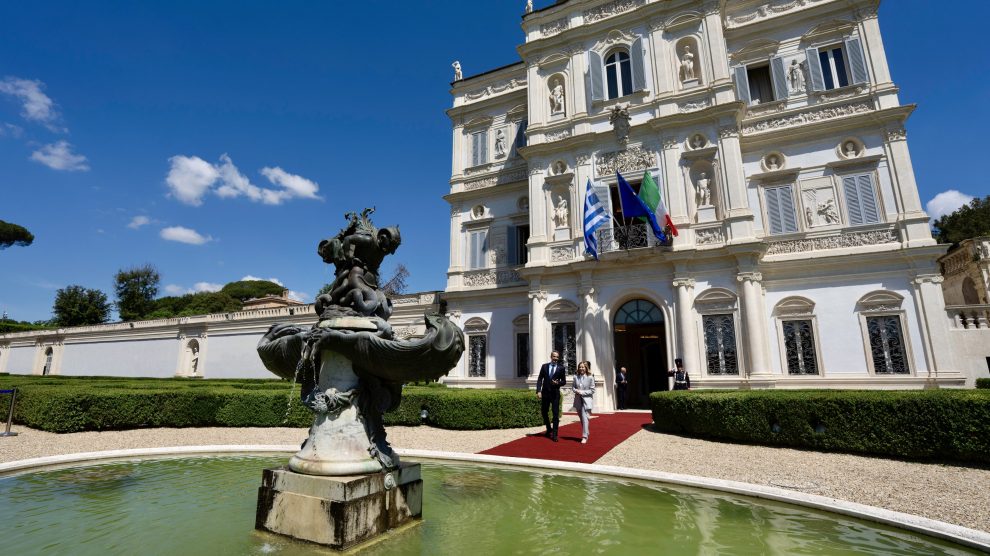What happened. On Monday, Italy and Greece signed 14 bilateral agreements during a wide-ranging intergovernmental summit in Rome, underscoring a deepening Mediterranean partnership.
- Without Italy and Greece, “the idea of the West that we know today would not exist,” said Prime Minister Giorgia Meloni, opening her speech to the press at Villa Doria Pamphilj in Rome.
- Greek Prime Minister Kyriakos Mitsotakis described the summit—the first in eight years—as “substantial and decisive,” not just a symbolic diplomatic event.
Decoding the news. With shared geopolitical interests in the Mediterranean and similar views on key global challenges, the two countries are positioning themselves as pillars of stability in the region.
- The summit addressed energy, defence, cybersecurity, transport, agriculture, and public safety cooperation, framing a comprehensive strategy beyond bilateral ties.
- “Italy and Greece share a strategic vision in the Mediterranean and aim to reinforce their role as pillars of regional stability”, Meloni said, underlining a “common goal” to “consolidate the new European approach to managing migration flows, focusing on protecting external borders and cooperation with countries of origin.”
By numbers and details. The two governments signed 14 agreements.
- A €2 billion deal between Terna and IPTO for a new 1,000 MW submarine electricity interconnector (GR.ITA.2), reinforcing grid resilience across Southern Europe.
- A €360 million investment by Ferrovie dello Stato to modernise Greek railways, including 23 new trains and infrastructure upgrades.
- Joint protocols on civil protection, drug enforcement, public order, and emergency response.
- A cooperation agreement on cybersecurity, industrial policy, SMES, digitisation, space, sports, and public administration innovation.
- A phytosanitary research pact between CREA and the Benaki Institute, and a new dialogue on sustainable agriculture and fisheries.
Zoom in: Defence cooperation. During the summit, Italian Defence Minister Guido Crosetto and his Greek counterpart Nikos Dendias signed a strategic agreement on airspace monitoring against non-military threats.
- “Strengthening cooperation is essential to promote stability and security across the wider Mediterranean — and by extension, all of Europe,” Crosetto stated.
- The deal expands cooperation in the defence industry and joint military training and reinforces coordination within NATO and the EU.
- Dendias called the partnership “a reflection of solid friendship and strategic alignment” between Athens and Rome.
Migration, a common strategy. Migration policy emerged as a core pillar of the summit. Both leaders emphasised a common approach to EU migration reform, moving from internal redistribution toward border protection and external cooperation.
- “On migration, Greece has finally found the right partner in the Meloni government,” Mitsotakis said.
- Meloni reaffirmed Italy’s objective to reshape the EU’s approach: combating human trafficking, increasing repatriations, and working with countries of origin and transit.
- “We are the frontline countries—but also the ones bringing solutions,” she said.
What we’re watching. This summit is Italy’s second with a major Mediterranean player in just a few weeks, following the high-profile bilateral with Turkey.
- Despite long-standing disputes between Greece and Turkey, Italy has positioned itself as a pragmatic regional power capable of engaging all actors in the Mediterranean, bridging divides while advancing its strategic activities.
- East-Mediterranean stability is one of the key intra-regional issues.





